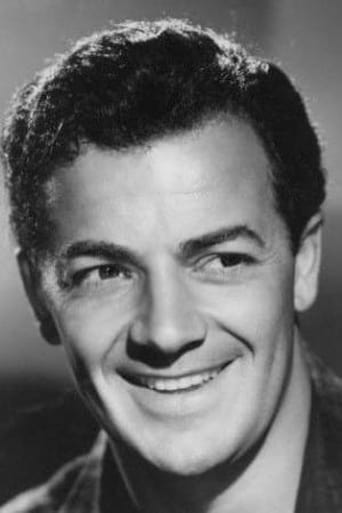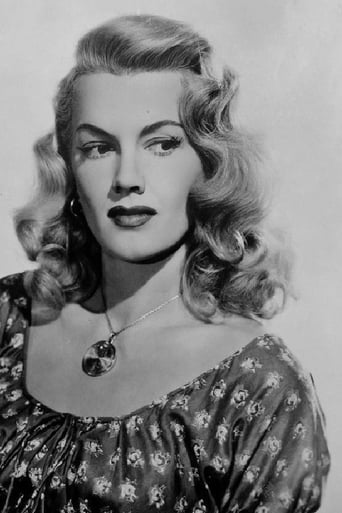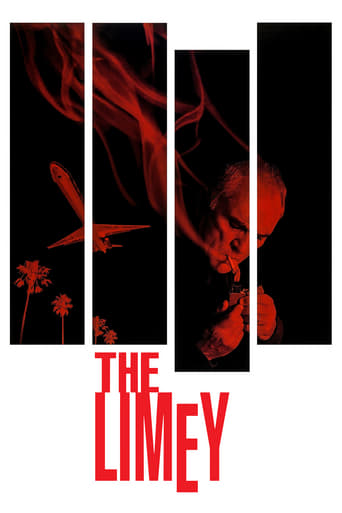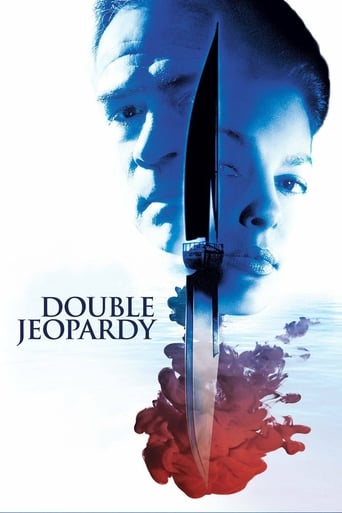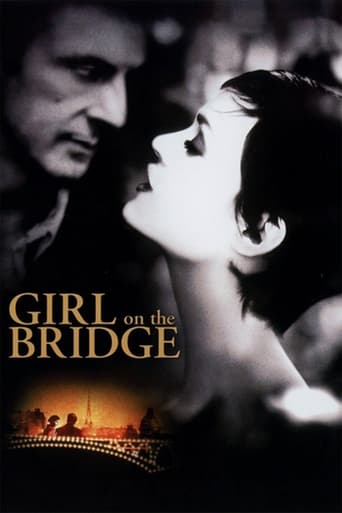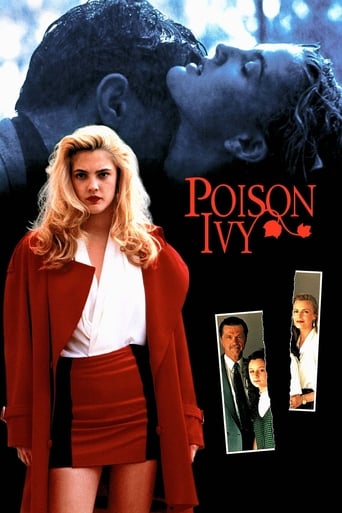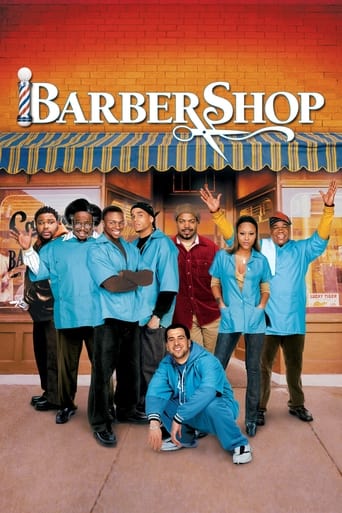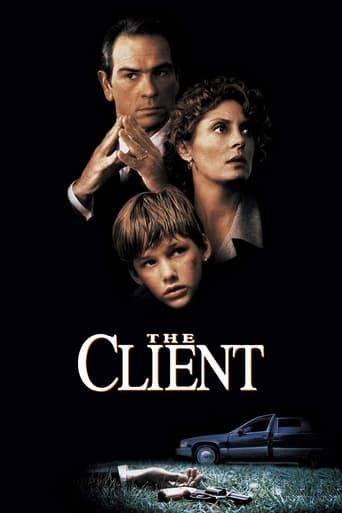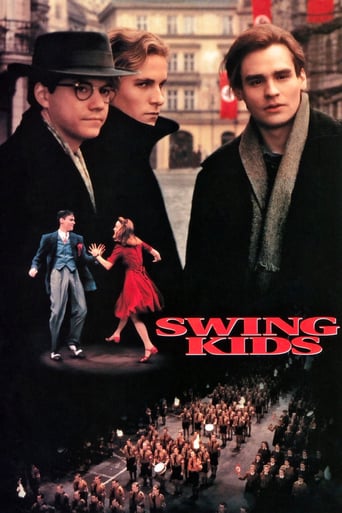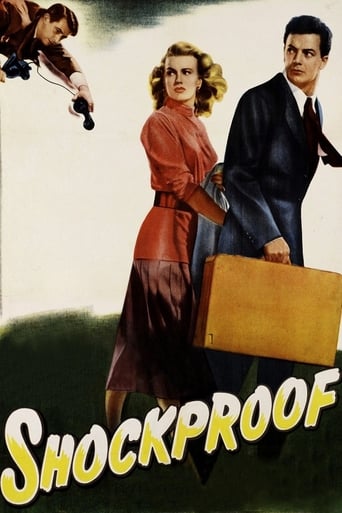
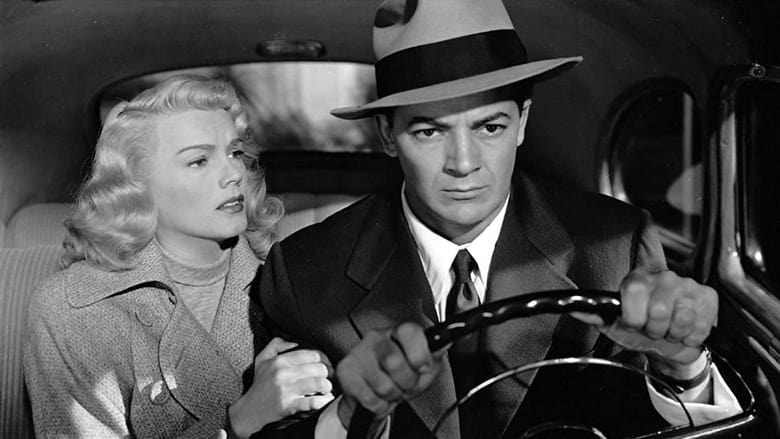
Shockproof (1949)
Jenny Marsh is a hard-luck dame who's just finished five years in the slammer for killing a man. Jenny's not exactly the murdering type -- she did the deed while defending her jailbird lover, Harry, which is probably one reason she's attracted the attention of her parole officer, Griff Marat. In fact, Griff is so taken with Jenny that he gets her a job caring for his ailing mother, but although Jenny tries to fly right, she's not yet over Harry.
Watch Trailer
Cast


Similar titles
Reviews
Jenny Marsh, still dangerously attractive after 5 years in prison for killing a man in defense of her shady lover Harry, clashes at first with parole officer Griff Marat, who's determined to make Jenny go straight. Neither charming or romantic enough to be satisfying 'Shockproof' is a pretty boring, muddled and quite generic flick that even tho it was made in 1949 we can still see in times like this and believe me i don't mean that in a good way. The acting wasn't anything great and the storyline was for sure far from anything special as well for sure. (0/10)
"Shockproof" gets off to a solid start as a psychological crime drama. Cornel Wilde and Patricia Knight (then Wilde's real-life wife) are both attractive and convincing as a straight-arrow, somewhat naive, parole officer and a parolee in whom he takes far too personal an interest, portending trouble for both.Without giving too much plot away, they end up on the lam, at which point both the action and the pair's decisions become increasingly less plausible, but well within the bounds of most viewers' willingness to suspend disbelief.Ultimately the film makers seem to have painted themselves into a corner. The protagonists reach a point where any logical continuation can only lead to disaster for them. For whatever reason (studio pressure, perhaps) the last minute or so is the most blatantly improbable and unconvincing tacked-on happy ending in Hollywood history, or at least tied for that distinction. So be forewarned: a gripping drama most of the way but the ending guaranteed to leave you figuratively scratching your head with a bad taste in your mouth. If you can overlook that, give it a whirl. If you can't, best watch something else.
This movie is a romance, of a harmonious popular 'classicalness, of which Sirk has been an (acknowledged) craftsman, and who could define the ease, the ineffable charm of the characters and of the storytelling, the deftness, the craft, the zest, art-wise the direct opposite of the noir, being about love, trust, redemption, serene or translucent things (but being, maybe equally, about patronizing, manipulation, lack of respect , things which Sirk obviously didn't endorse at all and needed to expose here); now, things written about Sirk's movies are often condescending, but unfairly so. The officer and the paroled woman have very good scenes, as when he explains love (what he feels love should be), or when they talk about the invented cousins, initially she seems a decent girl (more than a paroled jailbird), a bland character, then a submissive and very meek woman, being patronized by each of the two guys, allowing each to try dictating her what to think about the other, a rather unlikely behavior, I felt that Sirk cared about this aspect, this domination, he showed its inequity, its wrongness; 'Shockproof' is enormously enjoyable, heartfelt, with gusto, suspenseful when needed, made as a romance, I liked the score, the sets, the awesome cinematography, Sirk's trademark sentimentality (the naivety, the idealization) (meeting Fuller's script, and Wilde's acting)-to use a rather dull word. Marat was shown as a modest everyman, sentimentally inexperienced and mild (his first scenes are different), and politically ambitious (this is told, not shown), with the idea that a political career fits a nice guy's way of life, befits him, so in Sirk's cinema there's also this side of idealization, of delivering the conventional idealizations, but keep also in mind that he subverts the tropes of lying, deceiving, cheating, and he does this magisterially, as with the parolee's story about how she shot the persecutor of her newfound peace, so Sirk handles conventions with ease, for the joy of handling them so well and getting a one might say even lyrical effect, as you can see in the scene with the oilman's newspaper. The parolee was very patronized, each of the two guys wishing to tell her what to think ; this is one of the things I found striking in this movie, the other being the harmonious, exciting, lively form. And from both things one is left with an honest appreciation for Sirk, his craft and world-view.
As an English parole officer from the mid 70's to the early 2,000s I knew there were significant differences in the US and English and Welsh parole systems (there are also differences between the English and Welsh, Scottish and Northern Irish schemes, where there are different legal systems, although they are broadly similar) I was hoping for a comment from someone who knows something about the system in Los Angeles as it operated in the late 40's, but there is none so far, nor in any of the reviews or message board comments.As far as I was concerned it was wrong from the very first interview and completely wrong from the point Griff insisted that Jenny go to dinner with him, thereafter it was all downhill.What kept me watching, I guess, was curiosity at how the plot would be worked out plus pretty good performances and great visuals along with the historical interest of street scenes, customs and costumes etc..I am still hoping for a comment from someone "in the know" about the Los Angeles Parole system.What disappoints though is that the public are given a completely unrealistic view of the workings of a criminal justice system, based on tabloid stereotypes, which are over simplistic in every sense and completely out of touch with the complexity of human and political relationships. I suspect it is that stereo typical view which has landed us with politician's who, in order to gain power lock up people for far longer than is necessary and provide minimal support that makes re-offending more likely when, with an appropriate balance of care and control and humanity, real changes can be achieved albeit, not without some catastrophes along the way, catastrophes that we will get whatever systems are in place!Sad to read that Wilde and Knight's marriage did not last, as I suspect that broken families are at the heart of many of Society's problems.


